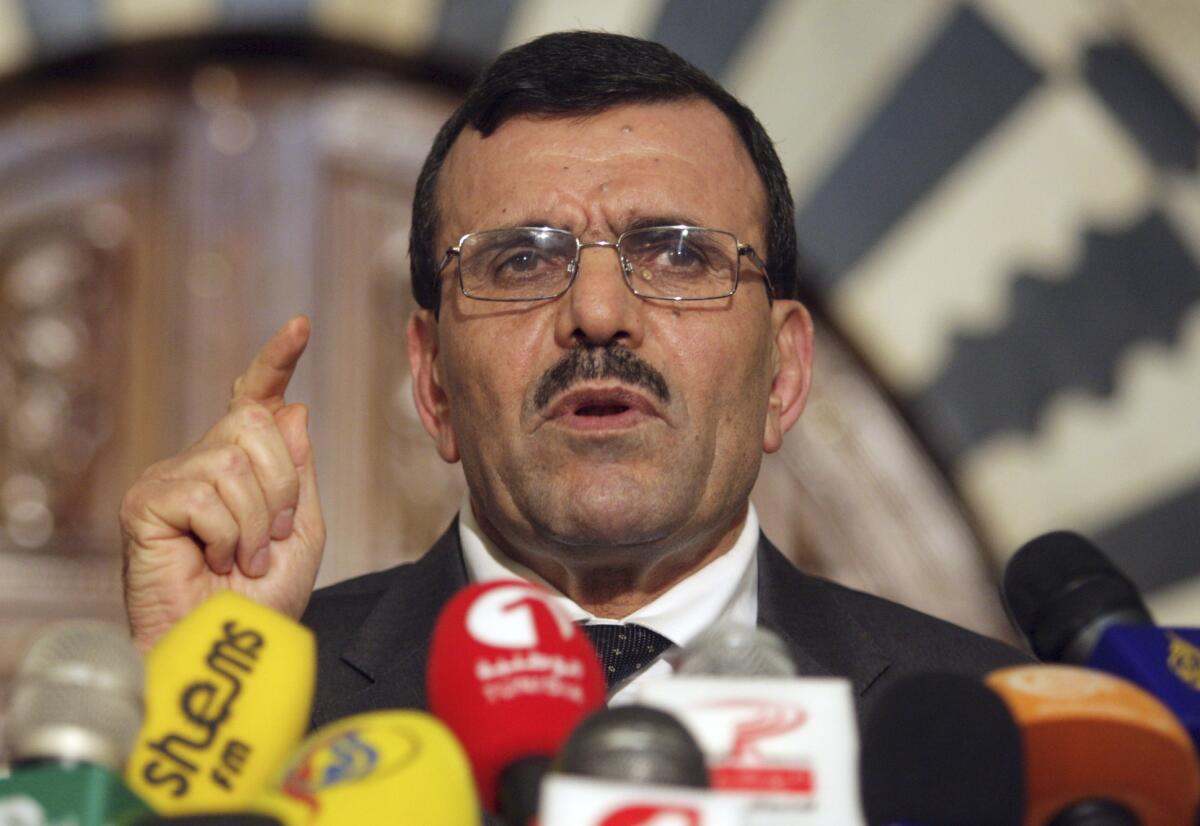Tunisia Islamists inch closer to stepping down from power

TUNIS, Tunisia -- Shaken by weeks of massive street protests, Tunisia’s Islamist-led government has edged closer to stepping aside, agreeing Saturday to enter talks aimed at setting up a caretaker administration, participants in the negotiations said.
Tunisia’s popular uprising nearly three years ago threw off decades of autocratic rule and touched off protest movements that rolled across the Arab world. But, as also happened in Egypt, the Islamist-dominated coalition that subsequently came to power proved deeply unpopular, triggering large-scale unrest.
The Tunisian crisis intensified in July after opposition politician Mohammed Brahmi was gunned down, the second assassination of its kind in six months. Amid rising violence, political deadlock and economic paralysis, dozens of opposition lawmakers quit, and parliament was suspended.
An accord setting the course for formation of a new interim government was announced in a communique by the country’s powerful main labor movement, the UGTT, and the ruling Ennadha movement. But, reflecting the sensitivity of the matter, the government’s intention to step down, which had been a condition for starting those talks, was referred to only obliquely.
Ennadha’s president, Rached Ghannouchi, confirmed in the communique that it had accepted the “initiative for national dialogue.” Sami Tahri, the UGTT’s vice president for communications, said the formal resignation would be be finalized “once everything is in place” for the talks to start. The negotiations, to begin in coming days, are also meant to set an election date and agree on the broad outlines of a new constitution.
Tunisia was previously one of the most secular countries in the Arab world, and Islamist-style rule was not embraced by a populace that relished its long tradition of social tolerance.
A peaceful democratic transition had been widely hoped for after the revolution drove out longtime dictator Zine el Abidine ben Ali in 2011. That set off a chain-reaction of similar popular uprisings in Libya, Egypt and Syria and elsewhere, collectively dubbed the Arab Spring.
Ennahda won the largest share in Tunisian elections later that year, but failed to keep promises to act within a year to make electoral and other reforms. The opposition accused Ennahda of fomenting violence in the name of radical Islam, threatening women’s rights, mishandling the economy, and advocating harsh measures to promote public piety.
Fueled by droves of young demonstrators and members of Tunisia’s large middle class, a protest movement coalesced in recent months, setting up sprawling encampments in the center of the capital, Tunis, demanding that the government step down. Protesters generally welcomed Saturday’s developments, but said celebrations would probably wait until the government’s resignation was finalized.
ALSO:
At least 13 killed, many hurt in building collapse in India
Obama and Rouhani talk, then tweet about historic conversation
Security Council votes unanimously to destroy Syrian chemical weapons
More to Read
Start your day right
Sign up for Essential California for news, features and recommendations from the L.A. Times and beyond in your inbox six days a week.
You may occasionally receive promotional content from the Los Angeles Times.






